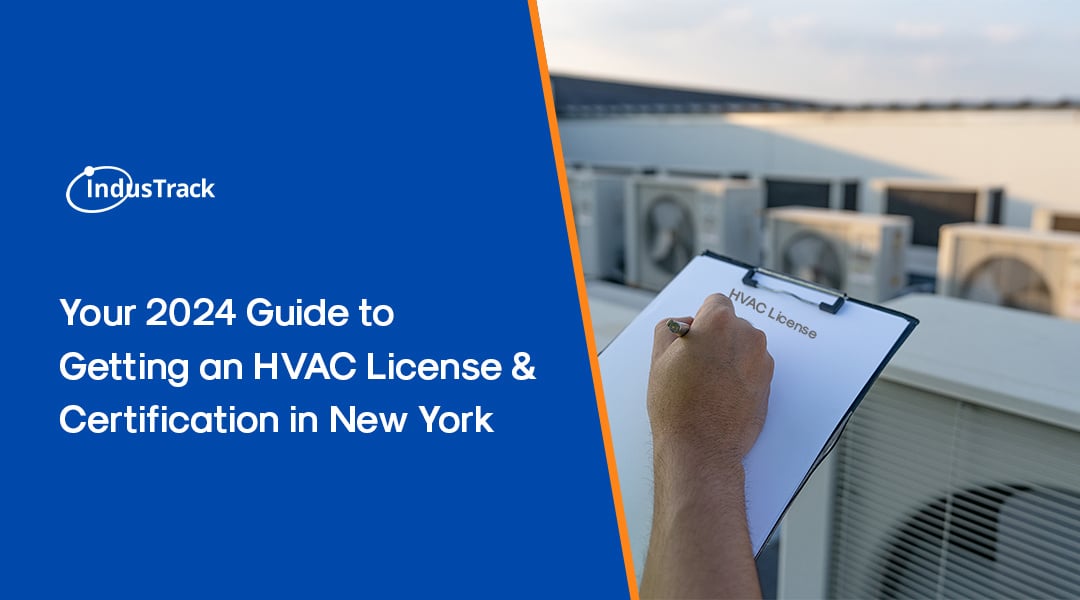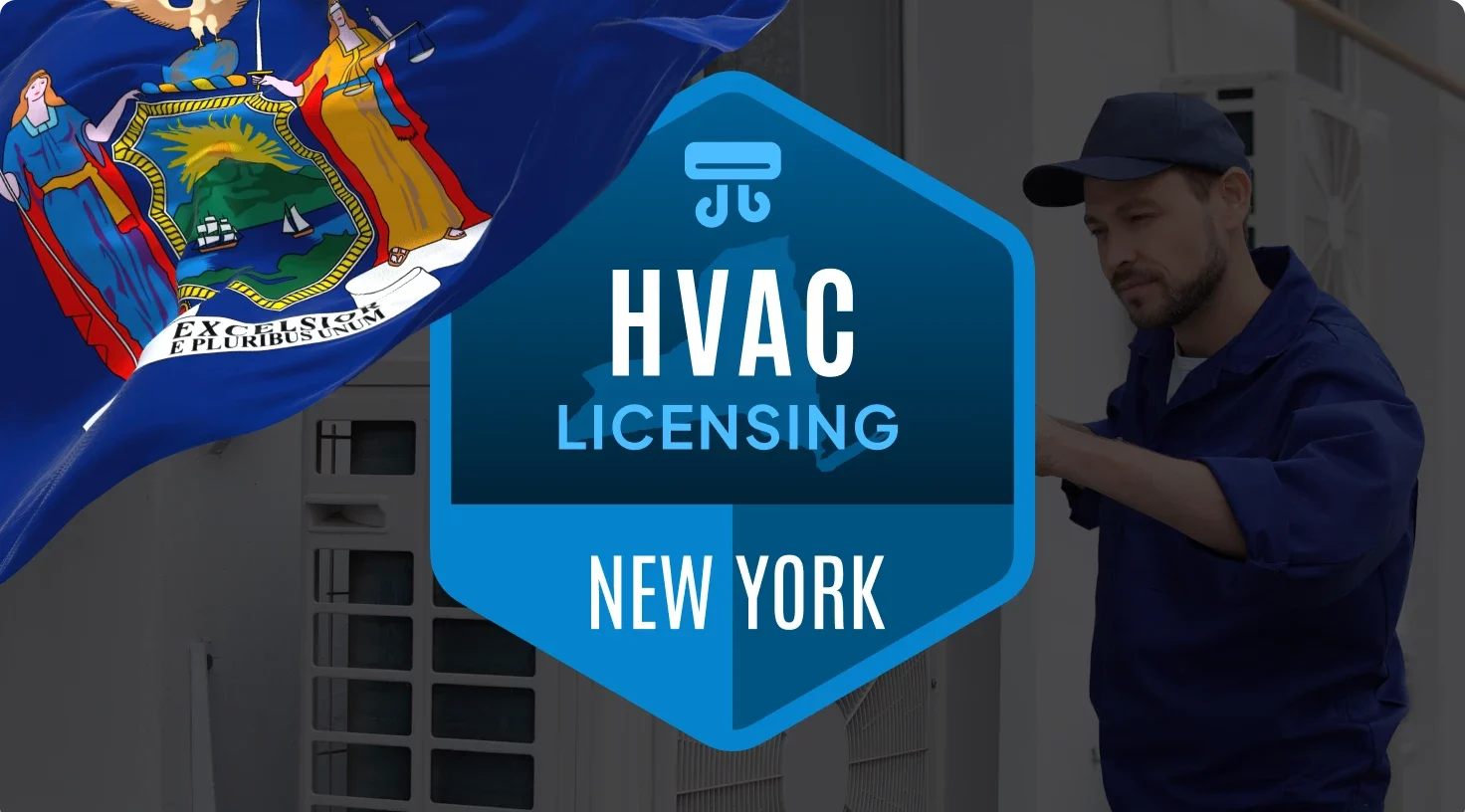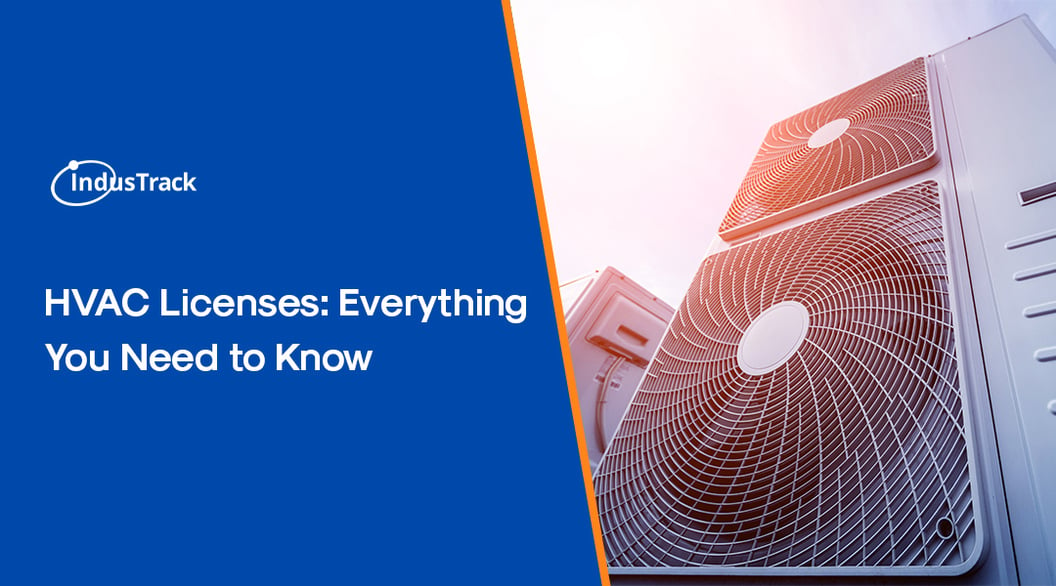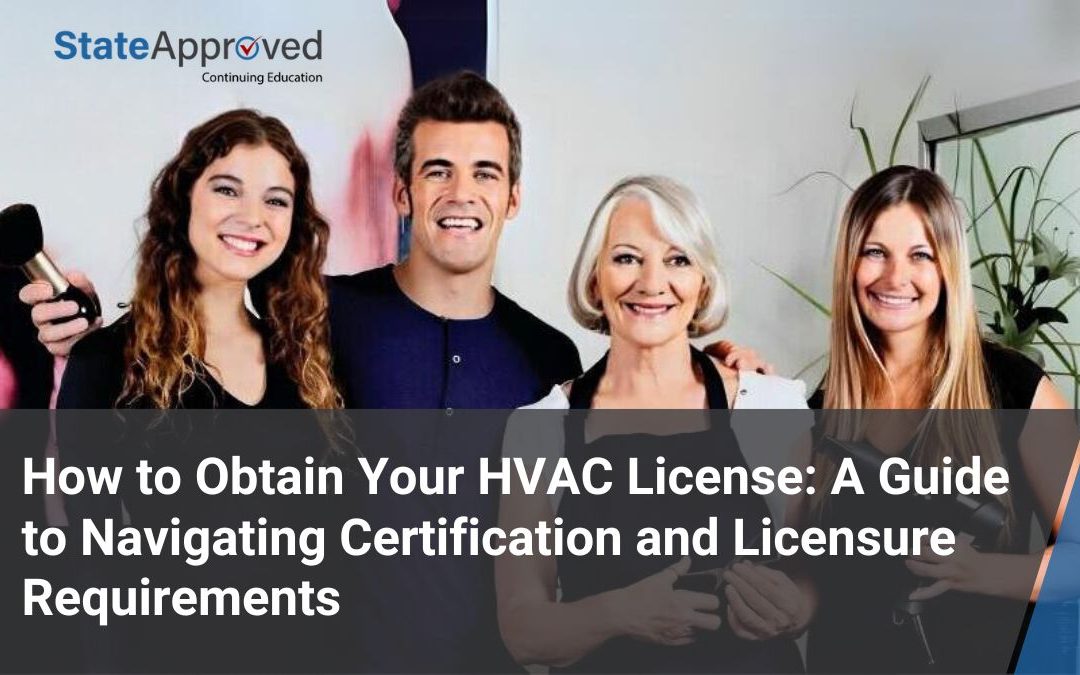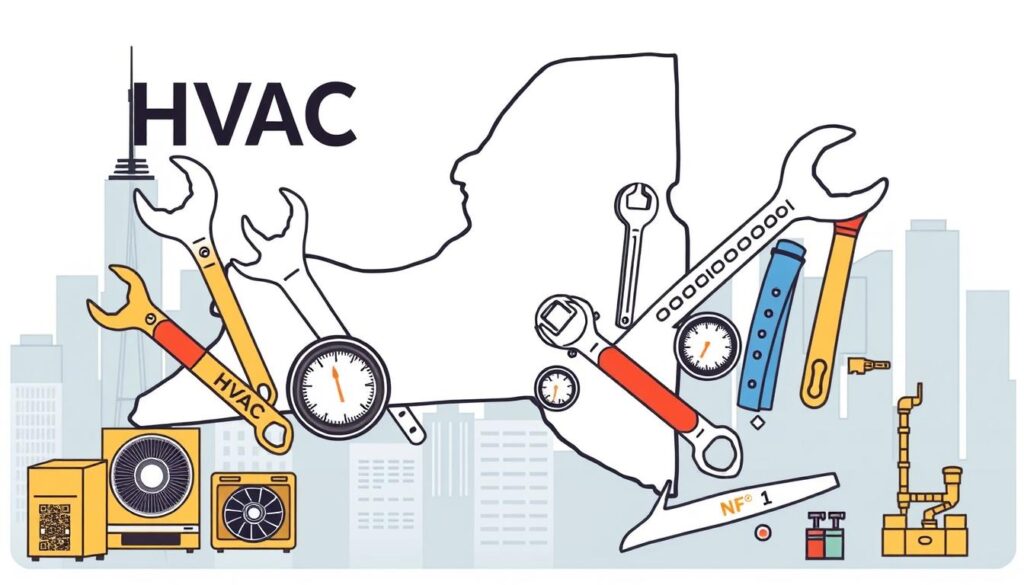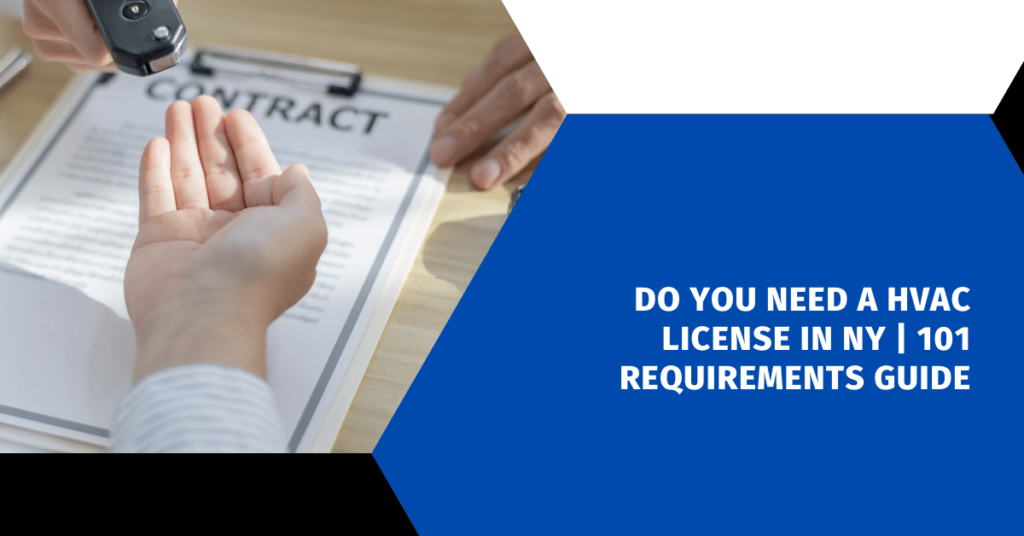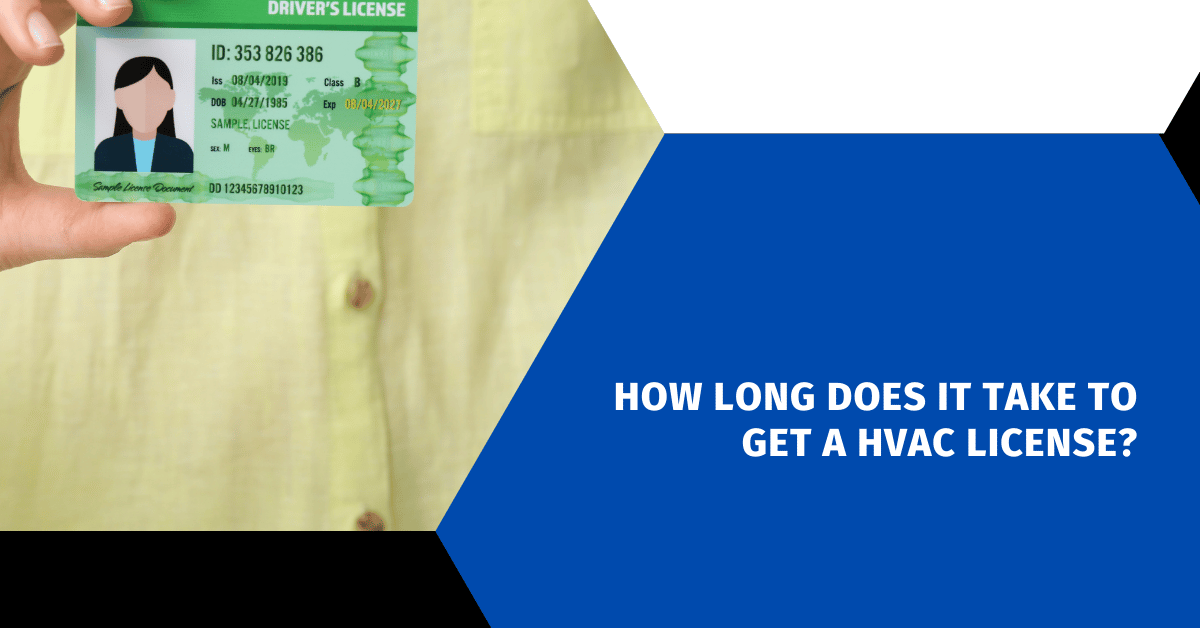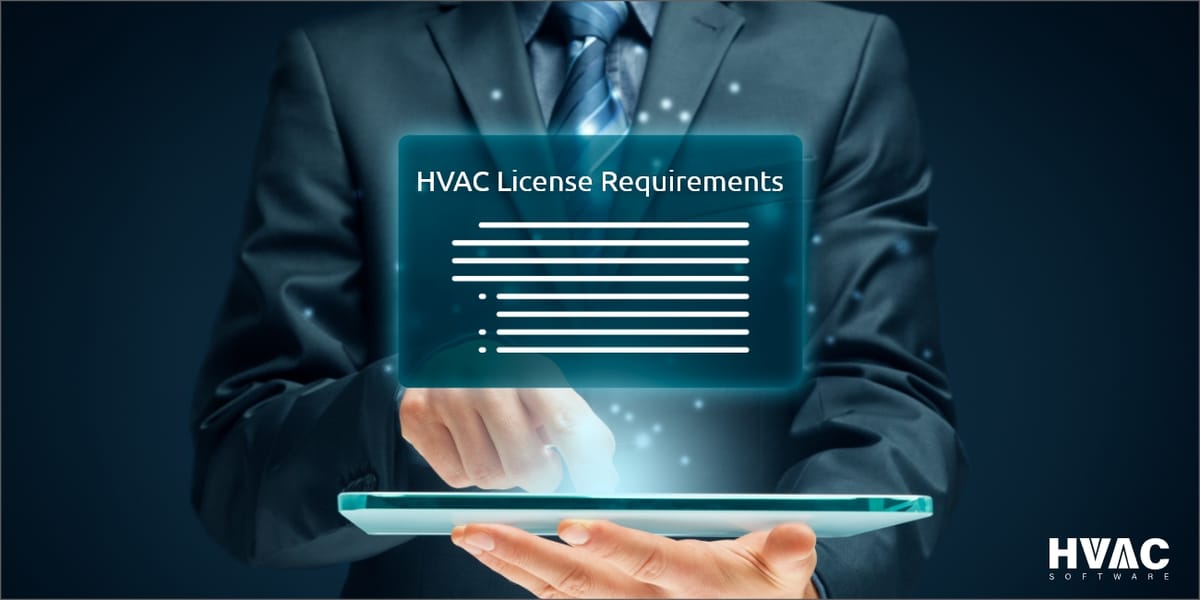How To Get Hvac License In Ny

Your Guide to HVAC Licensing in New York: From DIY to Pro
Considering a career in HVAC in New York? Or perhaps you're a homeowner tackling minor repairs and curious about what separates a DIY project from a job requiring a licensed professional? This guide breaks down the process of getting an HVAC license in NY, covering everything from basic terminology to the steps you'll need to take to become a certified technician.
Understanding HVAC Basics
Before diving into licensing, let's cover some fundamental HVAC concepts. HVAC stands for Heating, Ventilation, and Air Conditioning. These systems control the temperature, humidity, and air quality within your home or building.
Key components you should know:
- Furnace: Heats the air.
- Air Conditioner: Cools the air.
- Heat Pump: Can both heat and cool.
- Ductwork: Distributes the air throughout the building.
- Thermostat: Controls the system.
- Refrigerant: A fluid that absorbs and releases heat. Handling refrigerant requires specific certifications.
When to DIY and When to Call a Pro
Some HVAC tasks are within the realm of DIY, while others absolutely require a licensed professional. Here's a general guideline:
DIY-Friendly Tasks:
- Changing air filters.
- Cleaning condenser coils (exterior unit).
- Checking thermostat batteries.
- Clearing debris from vents.
- Resetting the system after a power outage.
Tasks Requiring a Licensed Professional:
- Refrigerant handling (charging, recovering, or leak repair).
- Electrical work (wiring, replacing components).
- Gas line repairs or installations.
- Installing new HVAC systems.
- Major repairs to compressors, heat exchangers, or other critical components.
Safety Tip: Always disconnect power to the HVAC system at the breaker before attempting any repairs. If you are unsure about any aspect of the repair, call a licensed HVAC professional. Working with electricity and refrigerant can be dangerous.
HVAC Licensing in New York: An Overview
New York State doesn't have a statewide HVAC license. Instead, licensing requirements are generally handled at the local level, primarily by cities and counties. This means the specific requirements for obtaining an HVAC license can vary significantly depending on where you plan to work.
Typically, licenses are required for individuals or businesses that install, maintain, and repair HVAC systems. The licensing ensures a level of competency and adherence to safety codes.
Steps to Getting an HVAC License in New York (General Guide):
While the specifics may differ based on the municipality, here's a general outline of the process:
- Research Local Requirements: This is the most crucial step. Contact the city or county licensing board in the area where you plan to work. Ask about specific license types, required qualifications, and application procedures.
- Meet Eligibility Requirements: Common requirements often include:
- Age: Typically, you must be at least 18 years old.
- Education: A high school diploma or GED is often required.
- Experience: Several years of documented experience in the HVAC field are almost always necessary. This can be through an apprenticeship, on-the-job training, or formal education.
- Formal Education/Training: Completing a certificate or degree program in HVAC from a trade school or community college can significantly enhance your qualifications and potentially reduce the required work experience.
- Complete an Apprenticeship (Recommended): An apprenticeship is a structured training program that combines classroom instruction with hands-on experience under the supervision of a licensed HVAC professional. It's an excellent way to gain the necessary skills and experience.
- Pass an Examination: Most licensing boards require you to pass a written and/or practical examination to demonstrate your knowledge and skills. The exam typically covers topics such as:
- HVAC principles
- Refrigeration cycle
- Electrical systems
- Piping and ductwork
- Safety codes and regulations
- Blueprint reading
- Obtain Insurance and Bonding: Many licensing boards require HVAC contractors to carry liability insurance and a surety bond. This protects customers in case of damage or poor workmanship.
- Submit an Application: Once you meet all the requirements, you can submit an application to the licensing board, along with the required fees.
- Renew Your License: HVAC licenses typically need to be renewed periodically (e.g., every one to three years). Renewal often requires completing continuing education courses to stay up-to-date with the latest technologies and codes.
Specific Examples of Licensing Requirements in NY Cities:
To illustrate the variations in licensing, let's look at a couple of examples (remember to always verify with the specific local authorities):
- New York City: HVAC work in NYC often falls under the umbrella of a general contractor's license or specific plumbing/mechanical licenses. You'll need to investigate the specific requirements depending on the scope of work.
- Other Cities/Counties: Many other municipalities have their own licensing boards and specific requirements. Always contact the local authorities directly for the most accurate information.
HVAC Repair Cost Estimates
Understanding the costs associated with HVAC repairs can help you budget and avoid being overcharged. Here are some rough estimates (prices can vary based on location, complexity, and contractor):
- Air Conditioner Repair (Minor): $150 - $500 (e.g., replacing a capacitor, cleaning coils)
- Air Conditioner Repair (Major): $500 - $2000+ (e.g., compressor replacement, refrigerant leak repair)
- Furnace Repair (Minor): $100 - $400 (e.g., replacing a thermocouple, igniter)
- Furnace Repair (Major): $400 - $1500+ (e.g., replacing a gas valve, blower motor)
- Ductwork Repair/Replacement: $20 - $50 per linear foot
- Thermostat Replacement: $100 - $300
Important Note: These are just estimates. Always get multiple quotes from licensed HVAC contractors before proceeding with any major repairs.
Tools of the Trade for HVAC Professionals (and DIYers)
Whether you're a seasoned technician or a homeowner tackling minor repairs, having the right tools is essential.
Essential Tools:
- Multimeter: For electrical testing.
- Refrigerant Gauges: For measuring refrigerant pressure. Requires EPA certification for use.
- Vacuum Pump: For evacuating refrigerant lines. Requires EPA certification for use.
- Leak Detector: For finding refrigerant leaks.
- Manifold Gauge Set: For working with refrigerant systems. Requires EPA certification for use.
- Tube Bender: For bending copper tubing.
- Flaring Tool: For creating flares on copper tubing.
- Combustion Analyzer: For testing furnace efficiency and safety.
- Hand Tools: Screwdrivers, wrenches, pliers, etc.
- Safety Glasses and Gloves: Always prioritize safety.
Common HVAC Problems and Troubleshooting Tips
Here are some common HVAC problems and basic troubleshooting tips:
- No Heat or Cooling: Check the thermostat settings, breaker, and air filter.
- Uneven Heating or Cooling: Check for blocked vents, leaky ductwork, or thermostat issues.
- Strange Noises: Could indicate a problem with the blower motor, compressor, or other components. Call a professional.
- High Energy Bills: Could be due to inefficient equipment, leaky ductwork, or poor insulation.
- System Cycling On and Off Frequently: Could be a sign of a dirty air filter, low refrigerant, or a faulty thermostat.
Disclaimer: These troubleshooting tips are for informational purposes only. If you are not comfortable working with HVAC systems, call a licensed professional.
The Importance of EPA Certification (Section 608)
Any technician who works with refrigerants must be certified under Section 608 of the Clean Air Act. This certification demonstrates that you understand the proper handling and disposal of refrigerants to protect the environment. There are different types of Section 608 certifications depending on the type of equipment you work on.
Working with refrigerants without proper certification is illegal and can result in significant fines.
Resources for HVAC Professionals in New York
- Local HVAC Trade Associations: These associations offer training, networking opportunities, and advocacy for HVAC professionals.
- HVAC Training Schools: Numerous trade schools and community colleges in New York offer HVAC programs.
- Local Licensing Boards: Contact the licensing board in your area for specific requirements and application procedures.
- EPA Website: For information on Section 608 certification and refrigerant regulations.
Staying Updated: The Future of HVAC
The HVAC industry is constantly evolving with new technologies and regulations. Staying updated is crucial for both homeowners and professionals. This includes learning about:
- Smart Thermostats: Programmable thermostats that can be controlled remotely and optimize energy efficiency.
- High-Efficiency Equipment: Furnaces, air conditioners, and heat pumps with higher SEER and AFUE ratings.
- Geothermal Systems: Renewable energy systems that use the earth's temperature to heat and cool buildings.
- Refrigerant Regulations: New regulations regarding the use of refrigerants with lower global warming potential (GWP).
By staying informed and seeking professional guidance when needed, you can ensure that your HVAC system operates safely, efficiently, and reliably for years to come.

